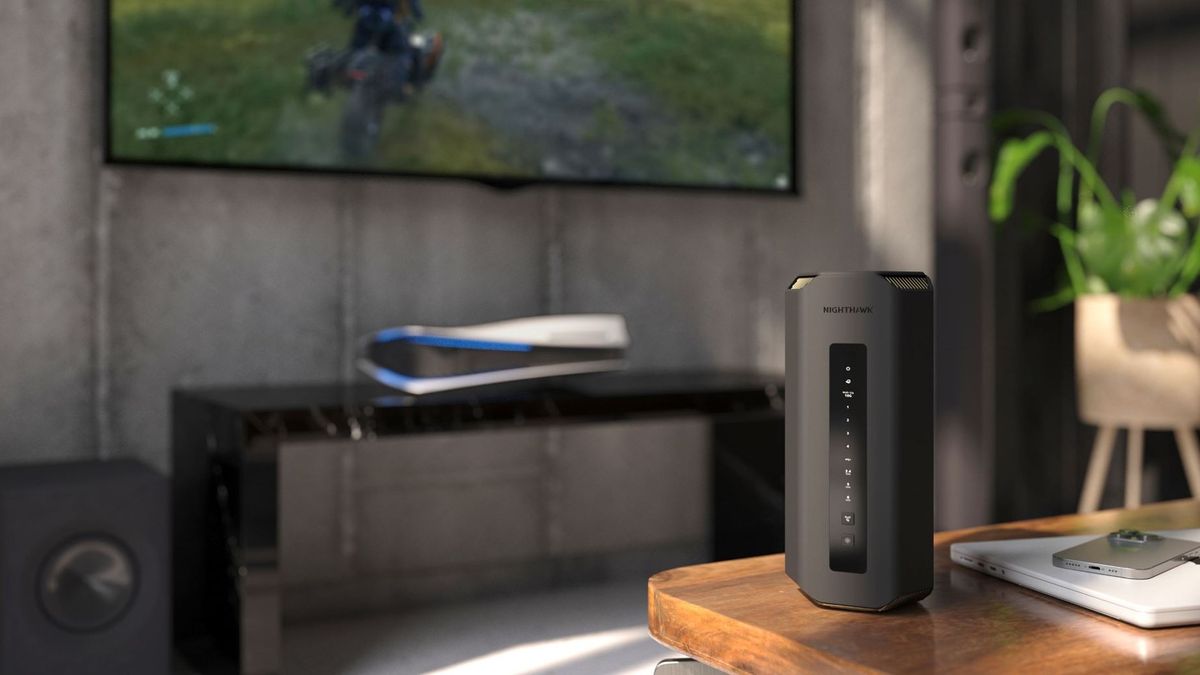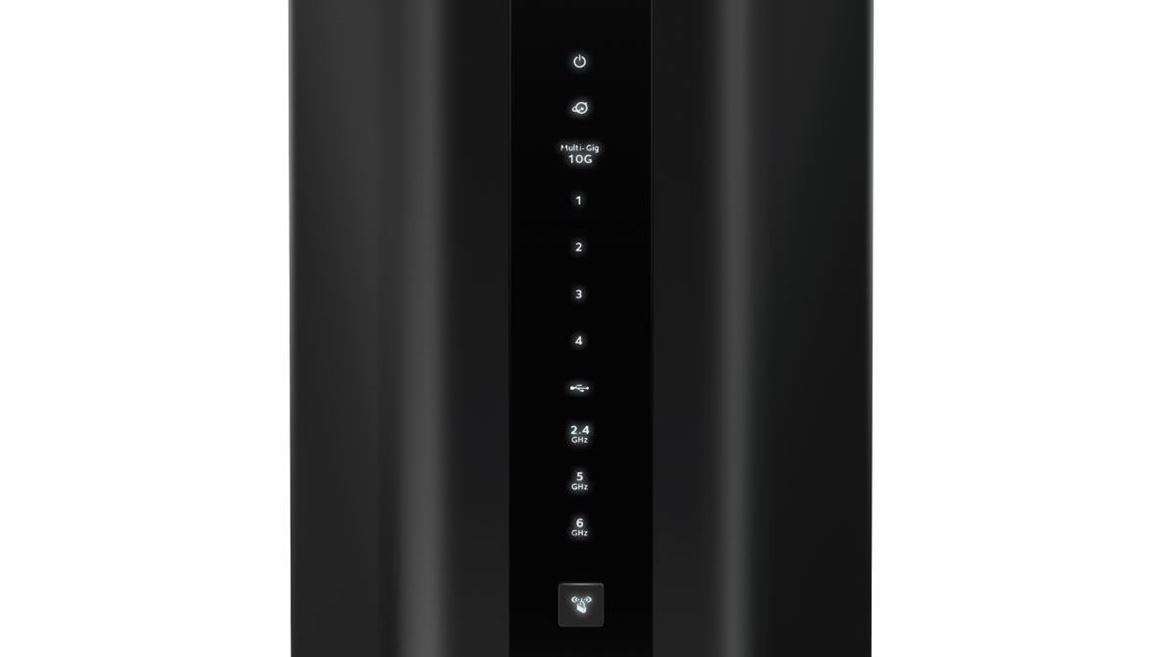
Netgear has released its first Wi-Fi 7 router, and while we’ve seen other such models from rival manufacturers, what makes it different is its actual pricing and pre-orders.
The Netgear Nighthawk RS700 is available to pre-order directly from the company for $699.99 (around £575, AU$1,050) – you don’t think it’ll be cheap, do you? – The router will ship in the US in the second quarter (probably as early as April).
The Nighthawk RS700 router supports Wi-Fi 7 (802.11be), which means you’ll be able to benefit from this next-generation wireless standard—at least in the future (we’ll get back to the ins and outs of it soon).
Wi-Fi 7 makes some important advances over Wi-Fi 6 (and 6E), bringing huge leaps forward in Wi-Fi speeds, lower latency, and greater coverage.In short, its performance and reliability (and a lot of faster than Wi-Fi 6).
On the tech front, the Nighthawk RS700 is a tri-band router that boasts speeds of up to 19Gbps and a coverage area of 3,500 square feet, supporting up to 200 devices. On top of Wi-Fi 7 for wireless — spanning the 2.4GHz, 5GHz, and 6GHz bands — Netgear offers four 1Gbps LAN ports and one 10Gbps LAN port for wired connections.
The RS700 has a tower design, which we think looks pretty smart, and you can also connect multiple units together if you want to go the mesh network route and cover a very large house with Wi-Fi signal.
Netgear is also implementing a system where not only is there an option to add a guest network for guests alongside the main network. You can also have a priority network for the most responsive and fastest gaming rig or streaming connection. Also, the IoT (Internet of Things) network will be there to isolate your smart home gadgets, keeping them separate in case you are concerned about the security issues associated with such hardware.
Also worth mentioning on the security front, the price tag includes a year of Netgear Armor, a security solution powered by Bitdefender.

Analysis: Future-proofing, or, uh, not
When new technology comes out, it’s inevitably expensive, which can lead to tricky buying decisions. Do you want to spend all your money on new equipment? However, when it comes to Wi-Fi routers, the decision for these early adopters is more complicated because the hardware comes out before the standard is really fully in place.
what does that mean? Well, official Wi-Fi 7 is still just a draft standard and won’t be formalized until 2024 (likely). That’s why other router makers may have revealed models, but they haven’t been listed or even priced yet. TP-Link has launched quite a few Wi-Fi 7 models, but they’re all marked as “coming soon” (ASUS has a few, too).
Netgear is the first manufacturer to actually price and ship a Wi-Fi 7 router, so you can buy it today — though it won’t ship for at least a month, probably until June. So, do you really need to pull the trigger and buy right now?
The short answer is: no, probably not. Read on for a more in-depth explanation.
Where is the support?
First, we should be clear that there’s nothing wrong with launching Wi-Fi 7 routers relatively early, because even though 802.11be is still a draft wireless standard, Wi-Fi 7 is done and dusted, and no meaningful progress will be made at this time. change in meaning.
The key point to realize here, though, is the obvious: You can have a Wi-Fi 7 router, but if your devices don’t support Wi-Fi 7 — your phone, tablet, laptop, whatever — then They cannot use this cutting-edge wireless standard. Yep, you guessed it — Wi-Fi 7 is in its early days, and hardly any devices support it. (So far, the only one we know of is the Mi 13 Pro smartphone, although there may be other Chinese phones).
So, are Wi-Fi 7 routers meaningless to the vast majority of people? Well, not quite, because it’s backwards compatible with all your existing devices and will still run them like a dream (just not at Wi-Fi 7 speeds). What you get from your Wi-Fi 7 router is future-proof—use it with all your devices now, and eventually, when you buy Wi-Fi 7 hardware, you’ll get the full benefits.
The thought is, if you need a new router anyway, perhaps because your current model has made its last trip to silicon heaven, and you’re spending money, why not look to the future?
The problem with the Netgear Nighthawk RS700 is that you’re obviously spending a lot of money — $700 is a lot to spend. That’s enough to buy you a PC (an average desktop anyway). Is it wise to pay such a high premium?
We would argue, not at this relatively early stage. Even if you do need to replace your router, we’d recommend at least considering a relatively affordable stop-gap Wi-Fi 6 model. Then sell used devices when Wi-Fi 7 fully arrives (we’re starting to see a ton of devices that support it), and then upgrade to Wi-Fi 7 routers, at which point prices will be more reasonable.
Having said that, though, if money is no object, it doesn’t hurt to be future-proof at this point in time, and this Netgear router does look pretty good.





